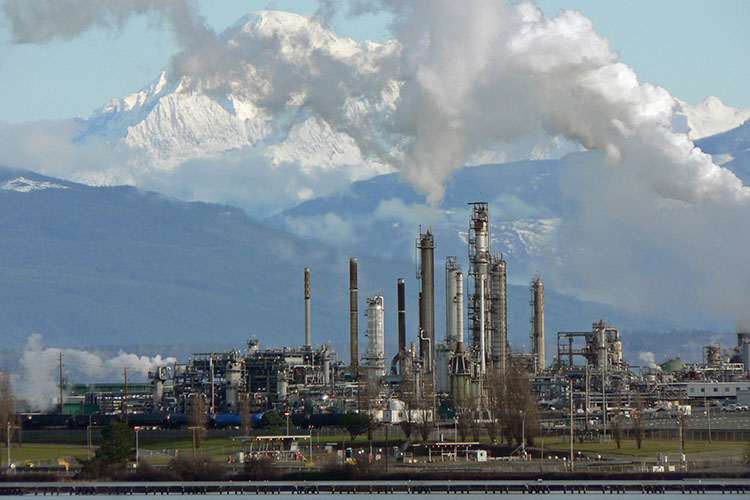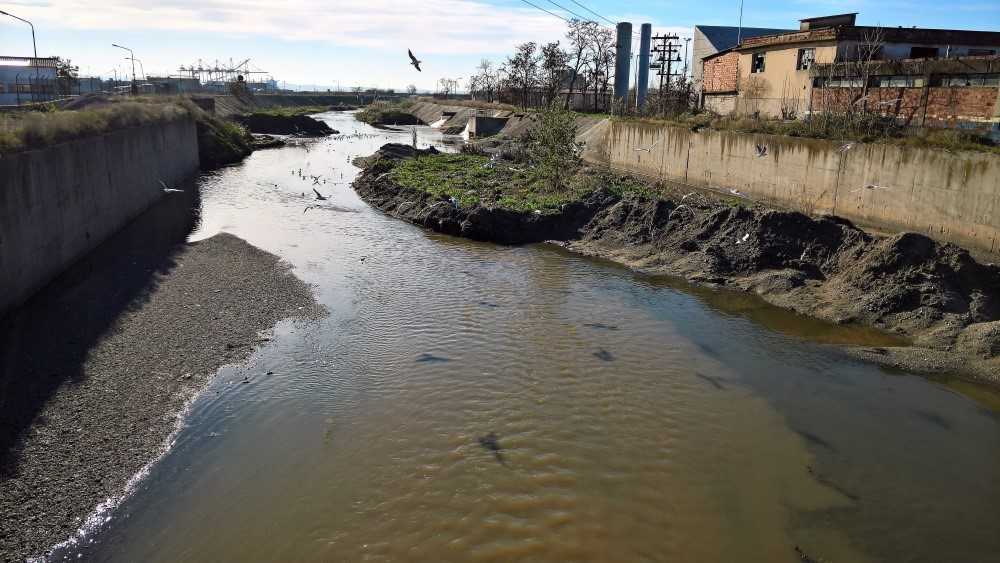Urban and Industrial Activities in Thessaloniki, Greece
Summary of pilot
The western part of Thessaloniki is degraded, in terms of socio economic and environmental development. Odour pollution is one of the major reasons of nuisance, that affects the local population. This is caused due to urban and industrial activities that co-exist at the same area over time
The situation
The western part of the city hosts numerous industrial activities (petrochemicals, metal processing, logistics facilities, etc.) that are located in proximity to urban areas. At the same time, various urban activities such as illegal burning of improper material, affects further to the environmental deterioration of the region. Further to that, the river that runs through the area, receives the untreated effluent of wastewater from this part of the city. All these activities, contribute to odour nuisance of different qualitative characteristics. It is an unsolved and unmapped issue that affects local population and businesses.
D-Noses role and aims
The reasons we selected the western part of Thessaloniki is because the area suffers from an unmapped and everlasting issue of odour nuisance. The aim is to map and frame the problem, thus helping the local authorities take action towards the tackling of the issue. Local stakeholders were identified through interviews and field visits at the area of interest. The observations with the use of Odour Collect along with meteorological and ambient air quality data will be collected and correlated, in order to reach to conclusions.
Progress so far
An active network of key stakeholders has been established. Local governmental authorities, researchers, local universities and residents of the affected area have been identified as key stakeholders.
More than 40 community meetings have been held with local governments, researchers, university professors, teachers and citizens of the affected area. Dedicated to the data collection and analysis process, questionnaires and the “OdourCollect” application are the citizens’ tools in order to report odour issues.
Access to schools did not have the progress we expected due to the general lockdown of the Western part of the city. Nevertheless, the introduction of hard copy questionnaires to the public, enabled us to overcome the curfew restrictions and get results from observations in extended parts of the affected area. So far approximately 450 observations have been gathered (100+ from Odour Collect App and approximately 350 from the written questionnaires) and currently we are processing the data.
The western part of Thessaloniki is degraded, in terms of socio economic and environmental development. Odour pollution is one of the major reasons of nuisance, that affects the local population. This is caused due to urban and industrial activities that co-exist at the same area over time
The situation
The western part of the city hosts numerous industrial activities (petrochemicals, metal processing, logistics facilities, etc.) that are located in proximity to urban areas. At the same time, various urban activities such as illegal burning of improper material, affects further to the environmental deterioration of the region. Further to that, the river that runs through the area, receives the untreated effluent of wastewater from this part of the city. All these activities, contribute to odour nuisance of different qualitative characteristics. It is an unsolved and unmapped issue that affects local population and businesses.
D-Noses role and aims
The reasons we selected the western part of Thessaloniki is because the area suffers from an unmapped and everlasting issue of odour nuisance. The aim is to map and frame the problem, thus helping the local authorities take action towards the tackling of the issue. Local stakeholders were identified through interviews and field visits at the area of interest. The observations with the use of Odour Collect along with meteorological and ambient air quality data will be collected and correlated, in order to reach to conclusions.
Progress so far
An active network of key stakeholders has been established. Local governmental authorities, researchers, local universities and residents of the affected area have been identified as key stakeholders.
More than 40 community meetings have been held with local governments, researchers, university professors, teachers and citizens of the affected area. Dedicated to the data collection and analysis process, questionnaires and the “OdourCollect” application are the citizens’ tools in order to report odour issues.
Access to schools did not have the progress we expected due to the general lockdown of the Western part of the city. Nevertheless, the introduction of hard copy questionnaires to the public, enabled us to overcome the curfew restrictions and get results from observations in extended parts of the affected area. So far approximately 450 observations have been gathered (100+ from Odour Collect App and approximately 350 from the written questionnaires) and currently we are processing the data.

Refinery site in Thessaloniki

The Dendropotamos river in the surroundings of the refinery
